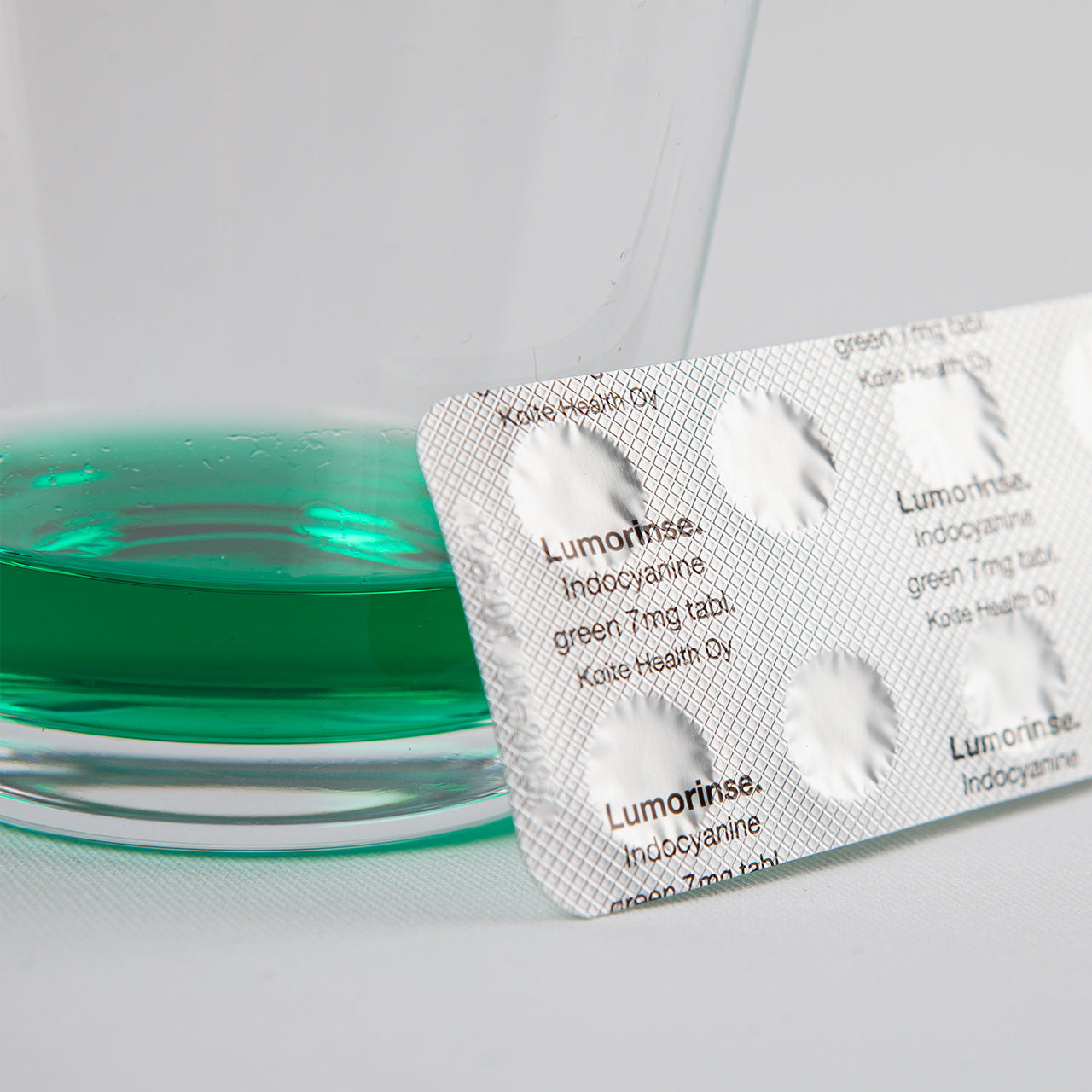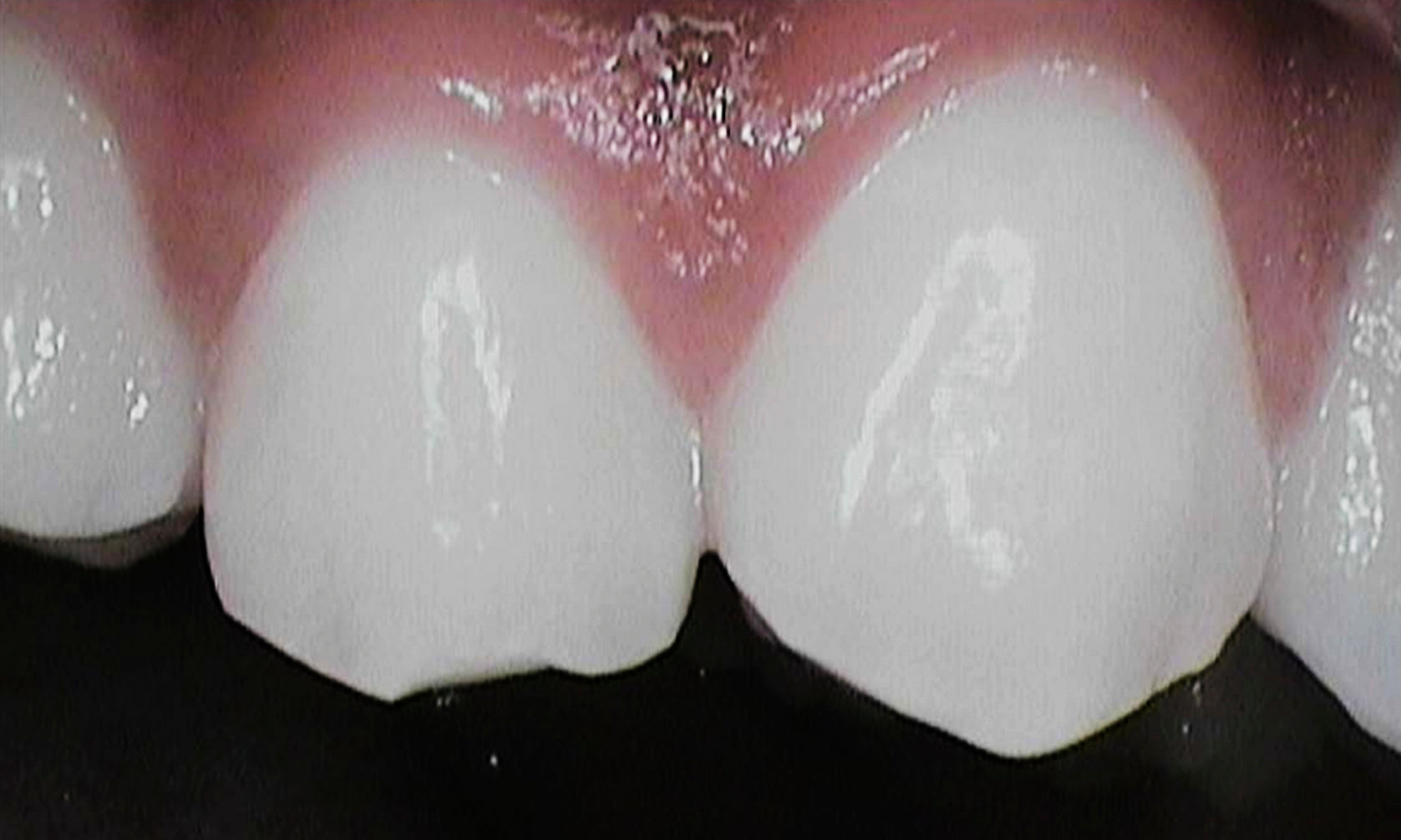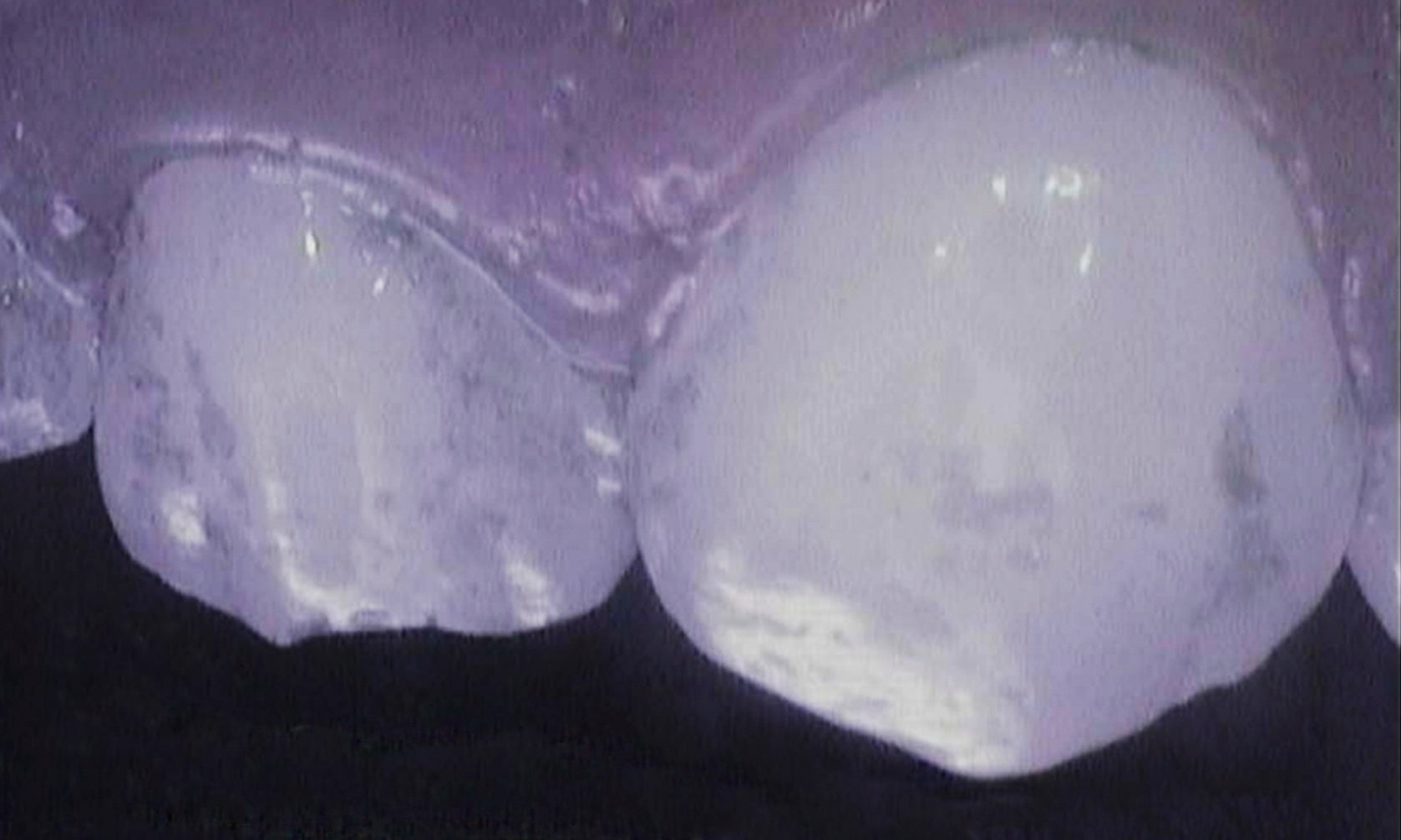Why Lumoral?
Lumoral treatment is a groundbreaking innovation that is transforming dental hygiene habits in homes worldwide. Backed by numerous scientific studies, this revolutionary approach enhances the quality of oral hygiene like never before.

What is residual plaque?
Studies have shown that careful brushing with the most powerful electric toothbrush on the market removes only about 65% of the harmful bacteria in the mouth.
While brushing and interdental cleaning are essential to oral care, they are often insufficient on their own.
Finnish researchers have developed Lumoral—a light-activated antibacterial treatment that complements mechanical cleaning to address the residual plaque that isn't visible to the eye.
Proven to be effective and safe to use
Our patented combination of light wavelengths and a photosensitizer is a unique feature of Lumoral. This combination has been proven effective against the bacteria that cause tooth decay and gingivitis. Lumoral not only reduces the bacterial load in the mouth but also slows plaque formation, leading to improved overall oral health. The product's clinical validation ensures that the treatment effectively maintains oral health.

Targeted effect
The exceptional antibacterial effectiveness of Lumoral treatment comes from the light-activated Lumorinse mouthrinse. This innovative rinse targets residual plaque with microscopic precision, maintaining a healthy bacterial balance in the mouth and shielding it from unnecessary antibacterial effects.
Similar light-activated antibacterial treatments have been used previously in dental clinics. Their effectiveness has traditionally been limited by high costs and the need for frequent applications to achieve significant benefits.
Plaque is always present on teeth
After traditional brushing, the teeth may look clean to the naked eye (left). However, near-infrared light reveals that plenty of plaque remains on the teeth.
Lumoral inactivates plaque bacteria accumulated on the tooth surface and gum line with microscopic precision. This slows down the formation of new plaque.


The impact of plaque on health
Research indicates that maintaining a healthy balance of oral bacteria is essential for overall health, comparable in importance to getting sufficient sleep. A bacterial imbalance in the mouth, known as dysbiosis, caused by dental plaque can contribute to a wide range of health issues, ranging from common dental problems to serious systemic conditions like cardiovascular disease, diabetes, and even Alzheimer’s disease.

Brain Health
A healthy mouth reduces the risk of stroke and memory disorders such as Alzheimer's disease. Oral bacteria can enter the brain, contributing to inflammation and constriction of blood vessels. For example, untreated gingivitis doubles the risk of stroke in people under 50.
Cardiovascular diseases
Poor oral health, particularly gingivitis, periodontitis and untreated tooth decay, has been linked to heart disease, including bacterial infection of the heart valves, myocardial infarction and heart failure. Bacteria in the mouth enter the bloodstream through inflamed gums, causing inflammation of the artery walls.
Diabetes
Diabetes and periodontitis have a two-way relationship. High blood sugar levels increase inflammation in the mouth and make it harder for periodontal disease to heal. Periodontal disease, in turn, affects the balance of diabetes treatment and impairs blood sugar control. The combined effect of these diseases is reflected in the body's systemic inflammatory markers.
Gut
The digestive tract starts in the mouth. Good oral health, healthy teeth and saliva production are important for efficient digestion. Bacterial imbalances, dysbiosis in the mouth can affect the gut microbiome, and the health of the gut as a whole. For people with bowel diseases such as IBD or Crohn's disease, improved oral hygiene plays an important role.
Pregnancy
During pregnancy, oral health becomes more important. Poor oral health has been linked to premature birth and low birth weight. Hormonal changes during pregnancy also increase the risk of gingivitis and tooth decay. Once a child is born, oral health becomes more important for the whole family.
Medical technology excellence
Lumoral is developed and produced by Koite Health ltd., a team of Finnish doctors, engineers, chemists and semiconductor technology specialists. The product is designed by award-winning designer Harri Koskinen.
Lumoral is based on multidisciplinary research and development. The method, product, and intended use are based on medical technology quality and efficacy.
Lumoral is intended for home use and must, therefore, meet high standards of user-friendliness and safety.
Lumoral in media
Supported by strong scientific evidence and the recommendations of a growing group of oral health professionals, Lumoral is attracting widespread international interest.

Adding Lumoral treatment to their normal oral hygiene routine can help avoid the need for major dental procedures in the future.

Dual-light photodynamic therapy helps kill oral bacteria

Antibacterial light-activated therapy improves oral hygiene. It can also increase oral moisture, as dry mouth is common in elderly individuals with multiple medications.

One key advantage of this antibacterial method is its selectivity. Lumoral primarily targets harmful oral bacteria, unlike other antimicrobial mouthwashes such as chlorhexidine.

Developed collaboratively with dental and therapy experts, Lumoral represents a significant advancement in oral hygiene technology, aiming to provide a practical and non-invasive method for enhancing oral health at home.
